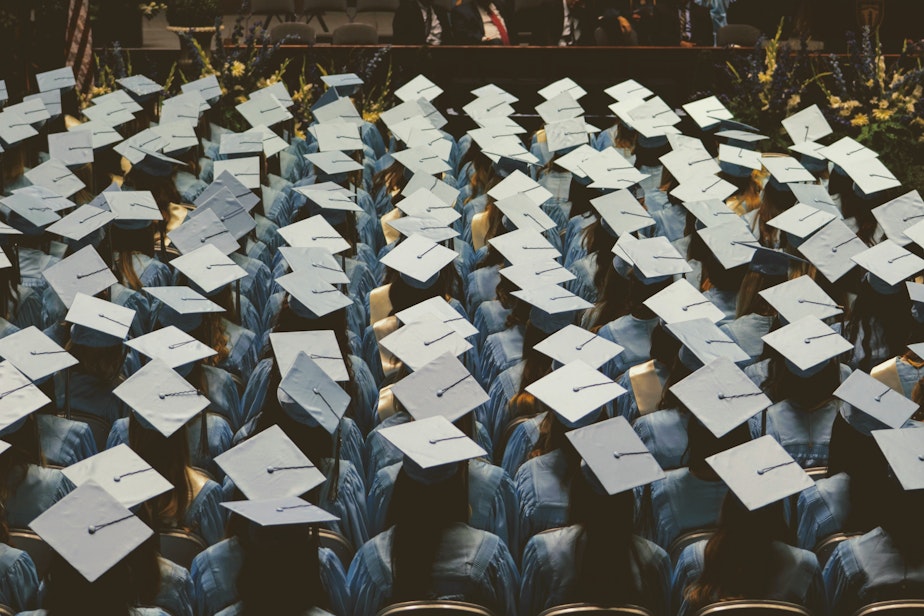High school didn’t prepare my sister for college. But hard work got her there

Around two million high school graduates go on to attend college each year in the United States. Jakha Tunkara is a recent high school graduate who feels that the school system failed to properly prepare her for college.
RadioActive's Muhammad Tunkara talks with his sister Jakha about the obstacles she faced.
[RadioActive Youth Media is KUOW's radio journalism and audio storytelling program for young people. This episode was entirely youth-produced, from the writing to the audio editing.]
T
he sound of a school bell is usually associated with a transition in school. The last time my sister Jakha heard it, the sound signaled a transition from high school to a new direction in her life.
My sister Jakha has always been a big inspiration for me. We both share a love for reading. Her goal going into college is to get a degree so she can secure a stable job in the career path she chooses.
Jakha is going to be the first in our family to go to college. Being a first-generation daughter of immigration means she's had to balance both her cultural identities and find creative ways to deal with her problems.
"Juggling school work and house work has been a big struggle for me," Jakha says. "Once I would get home from school I had to do my chores. That would leave me with me little time.
"Chores can take a very long time. They can take one or two hours, even up to five hours. And then I would only have like one or two hours to do homework. And then I have to go to sleep and my day would repeat."
One memory I have of my sister's hard work was when I was a freshman in high school. This was the first time I had a long project I was working on and I had to stay up until 1 a.m. to finish it. When I was going to bed, I noticed that my sister's light was still on. I could hear pages flipping as I walked up the stairs to my room.
All that hard work helped Jakha graduate with a high GPA. But public schools aren't always equipped to get students to college. Only a quarter of students who took the ACT in 2020 met the test's benchmark for being college-ready, according to the nonprofit ACT, which administers the test.
Jakha thinks her school failed to prepare her.
"I feel like school should have prepared me and other students more when it came to college applications, how to look for scholarships, figuring out which career path I might want to go down, and providing opportunities like job shadowing or having professionals come in and talk to students."
Being the first in our family to go to college and having all her responsibilities, college didn't feel accessible to Jakha because her high school didn't provide her with enough scholarship opportunities.
"I just took it into my own hands and went online and researched scholarships that I could get," she remembers, "and I just applied to all of them. And I got some of them."
My sister Jakha is one of the most hardworking individuals I know. I believe no matter what she does in her life she'll be able to accomplish great things. I'll always be rooting for her.
I asked Jakha what keeps her motivated when she's in a rocky place. She says family is what keeps her going.
Seeing my sister's perseverance has personally impacted me. I want to work a lot harder in my life. This fall she'll be a freshman at the University of Washington, and I'm looking forward to watching her succeed.
This RadioActive Youth Media podcast was produced in an introduction workshop for high school students. Production assistance by Ardo Hersi and Iz Ortiz. Prepared for the web by Iz Ortiz. Edited by Lila Lakehart.
Find RadioActive on Facebook, Twitter, Instagram, TikTok, and on the RadioActive podcast.
Support for KUOW's RadioActive comes from the Bill & Melinda Gates Foundation Discovery Center.
If you have any feedback on this story, you can email RadioActive at radioactive@kuow.org or find RadioActive on Twitter @kuowradioactive. Or you can fill out the form below. Reach out. We're listening.



